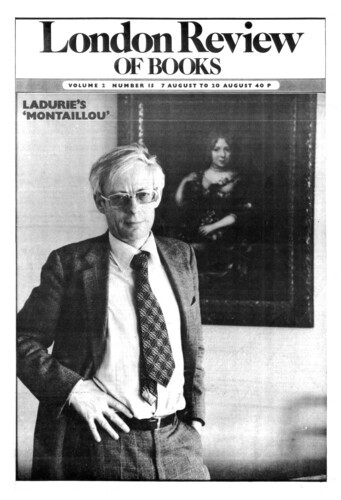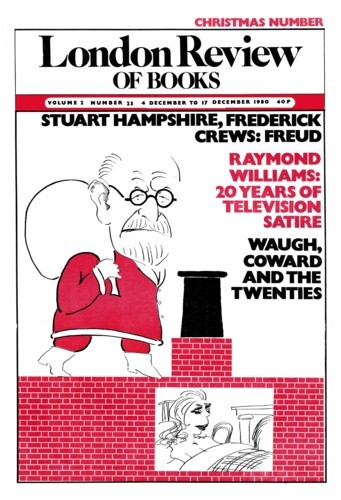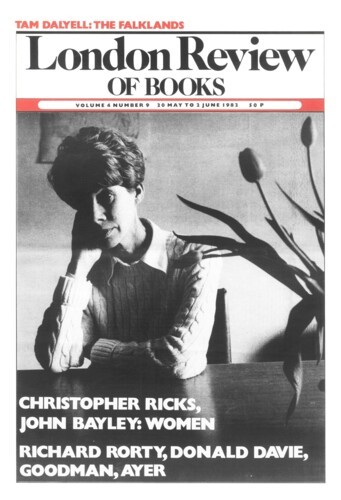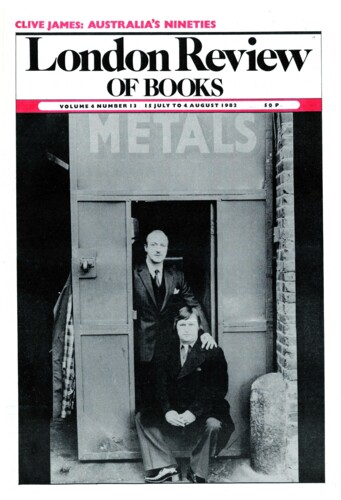The Powyses
D.A.N. Jones, 7 August 1980
Big guns (J. B. Priestley, G. Wilson Knight, George Steiner, Angus Wilson) have been booming the name of John Cowper Powys for many years, outraged that other big guns will not join the salute. In the first number of the Powys Review, in 1977, George Steiner blamed Dr Leavis for praising Theodore Francis Powys above John Cowper, thus denying J. C. his meed of lectures, tutorials and research students. Nevertheless, the book-addicted young, the Colin Wilsons of our time, find John Cowper instantly available in the heart of London, at the Village Bookshop, hard by Piccadilly Circus, that alternative campus.





